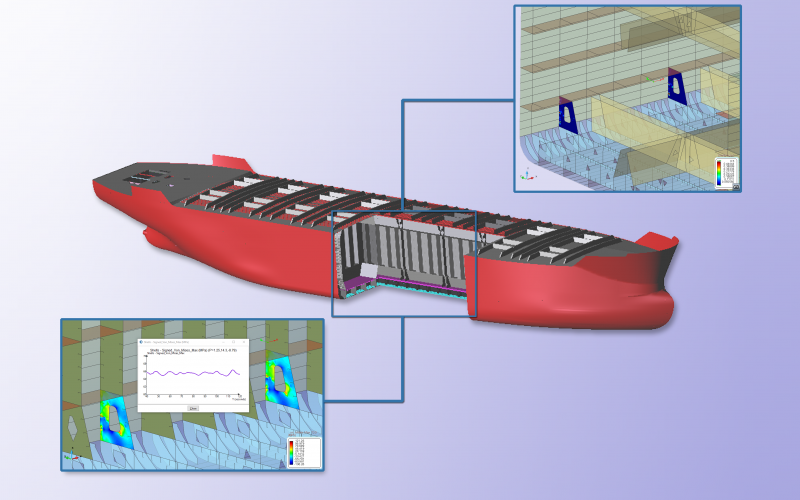HPC-Cloud-based standard strength assessment of commercial ships

The Challenge
The challenge addressed in this experiment was to demonstrate the use of advanced simulation in standard strength assessments of merchant ships. Such simulations require large amounts of computing power to realise viable calculation times. This requires the use of computing resources from an HPC provider. The objective of this experiment was to adapt standard strength assessment software, RamSeries, to run on remote HPC resources, to demonstrate the benefits of advanced simulation using Cloud-based HPC, to study the resultant performance of the simulations and to demonstrate their potential economic impact. A further aim was to develop a service for standard strength assessment available within the Fortissimo Marketplace. Realising such aims would give ISONAVAL a powerful design tool and a significant competitive advantage.
The Solution
The relevant software packages, including RamSeries, have been ported to an HPC-Cloud-based system and integrated into an overall simulation package. An effective interface between the end-user and the HPC resources has been implemented which integrates the various software components and the HPC system. This enables the simulations to be run from a familiar desktop system whilst using the full capabilities of the HPC system. The simulations running on the HPC system have been benchmarked using a model of the full 3D hull structure of a merchant ship. These demonstrated a significant speed-up by a factor of 42 through the use of an HPC system. This makes previously infeasible simulations now feasible and paves the way for new services to be offered by the ISV COMPASSIS.
The Benefits
A standard strength assessment study of a tanker requires more than a week on a desktop system. The use of RamSeries with HPC resources allows a complete analysis in less than 6 hours. This significantly reduced compute time fits much better to the design cycle of companies.
COMPASSIS will increase its market by introducing the use of the RamSeries software for the direct strength assessment of a complete ship structure. This assessment requires large computational and data storage resources. COMPASSIS estimates an additional annual revenue of €24K in 2017 growing to €120K in 2020, due to the sale of direct strength assessment of complete ship structures using RamSeries integrated with a Fortissimo HPC infrastructure.
ISONAVAL estimates an additional annual revenue of €15K in 2017 growing to €60K in 2020, also due to the sale of direct strength assessment of complete ship structures.
CESGA will offer new HPC added-value services for SMEs such as benchmarking to analyse performance of HPC applications, including multi-core scalability and its dependency on different parameters such as size of the problem and processor frequency. It expects a consequent increase in its HPC services and customers. New alliances with ISV and application experts have been formed during this experiment. Revenues based on 3 benchmarking studies and an annual fee for hosting the ISV software and for infrastructure maintenance will be around €35K over a 4-year period.
Companies Involved
End-user: ISONAVAL
ISV: COMPASSIS
Domain Expert: FNB-UPC
HPC: Provider: CESGA
